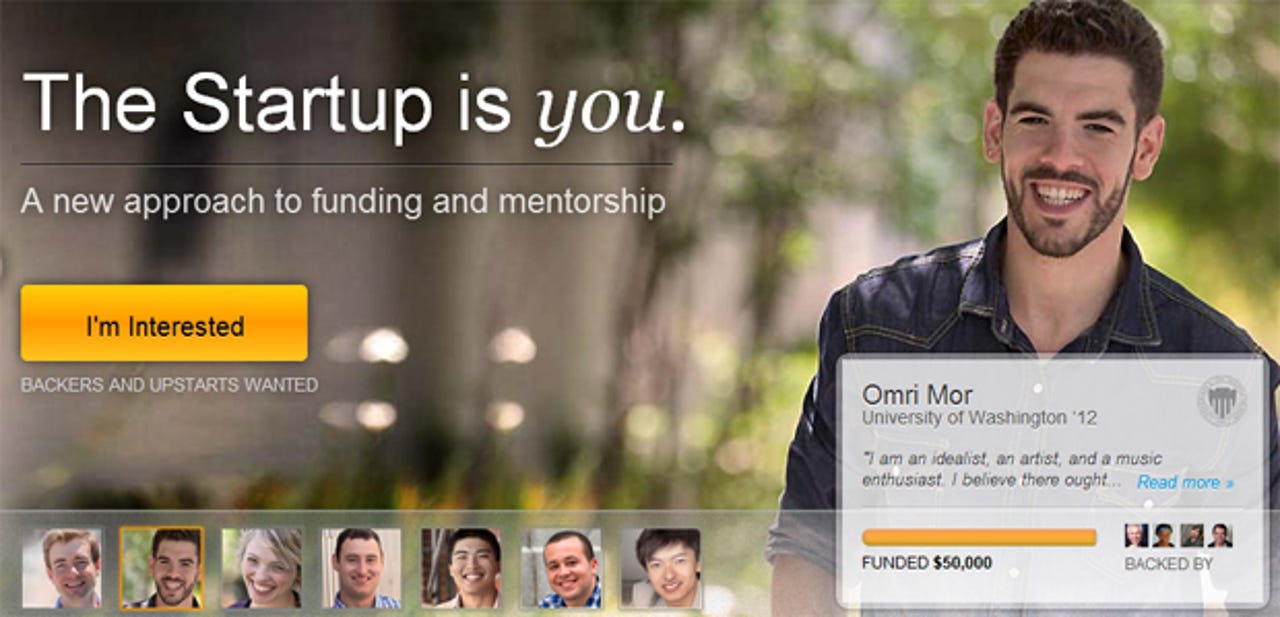Would you trade future earnings for start-up capital?

In exchange for a portion of your future earnings, a company founded by former Google executive, David J. Girouard, offers you funds to start up your own enterprise.
The company is called Upstart, and it is geared towards recent graduates who want to be their own boss. If you have an entrepreneurial project in mind but lack the capital to put the wheels in motion, the firm can help -- in exchange for a percentage of future earnings gained by the venture.

Traditionally among capital firms, outside investment is secured in return for equity within the company -- which includes shares and may be held against a company's assets. Upstart's model differs; instead, entrepreneurs have to agree to pay their backers up to 7 percent of annual income over ten years.
In addition, the backer will provide mentoring and guidance.
Graduates have to create a profile on the Upstart website, filling in details about themselves and pitching their project. Once this is completed, they apply for approval, and then if successful, investors can see their details. Upstart then calculates an investment rate -- based on one percent of predicted future earnings -- that students can receive.
The formula used takes into account a number of factors; including background, university, degree and grades.
After this is calculated, the control goes back to the graduate's hands. They get to decide how much future income they want to pledge to backers, which creates a financial goal and future business plan. If the whole amount Upstart calculated isn't raised, then the pitch has been unsuccessful and no backing is received.
Securing investment for projects when you're fresh out of college, bar projects like Kickstarter, is often more arduous than setting up the business itself. Girouard expects that the option will be of particular interest to individuals trying to setup high-risk ventures -- such as technology companies, or projects aimed at the creative industry.
On the Upstart blog, Girouard writes:
"Why shouldn't capable and ambitious grads be able to pull forward some income from their future selves -- with their earning potential serving as collateral, so to speak?
After all, $30,000 goes a lot further in your twenties, and can have a much larger impact in your life than it would later on. We have a surplus of bright young people who want to carve their own way -- to take a risk, start something new, and make a difference. They have all the energy and passion you'd expect from people in their twenties."
Currently, Upstart has secured five universities to participate in a pilot program to promote and get the company on its feet. The educational establishments involved are Arizona State University, Dartmouth College, the Rhode Island School of Design, the University of Michigan at Ann Arbor, and the University of Washington.
"We live in a nation built on willingness to take risk (all the way back to the pilgrims, in fact). For that reason, Upstart, or something like it, really needs to exist," Girouard wrote in Upstart's blog. However, there is no guarantee the investors will see a return on their money -- as with any funding, there is always risk.
If the pilot program at the participating universities goes well, then Girouard hopes it will be expanded across the U.S. -- and potentially overseas.
Image credit: Upstart